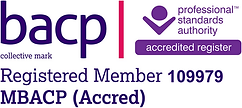Motherhood is a journey filled with highs, lows, and a wide spectrum of emotions. One term that has gained popularity in recent years is “mum guilt,” a phrase that many mothers have come to relate to deeply and one I hear day in, and day out in my therapy room. But what is “mum guilt,” really? And is it truly guilt that mothers are feeling, or could it be something else entirely? In this blog, I’ll unpick the meaning behind “mum guilt,” explore where it comes from, and challenge the notion of guilt itself.
What is “Mum Guilt”?
“Mum guilt” refers to the feelings of inadequacy, self-doubt, and failure that many mothers experience when they believe they aren’t living up to the ideal standards of motherhood. This can manifest in various ways, from feeling guilty about not spending enough time with the children to struggling with decisions like returning to work, choosing formula over breastfeeding, or not providing the “perfect” birth experience.
These feelings of guilt often stem from a belief that mothers should be able to do it all—flawlessly, without missing a beat. But when a mother perceives that she hasn’t met these expectations, the guilt creeps in. However, is it accurate to label these emotions as guilt?
The True Meaning of Guilt
According to the dictionary, guilt is “the fact of having committed a specified or implied offence or crime.” In this context, guilt is associated with wrongdoing, a violation of moral or social norms. So, ask yourself: have mothers actually done something wrong when they experience these feelings of “mum guilt”?
If a mother is upset because she had to have a C-section instead of the vaginal birth she hoped for, has she committed a crime? If she finds breastfeeding difficult or chooses formula feeding, has she done something wrong? The answer is, of course, no. These are not moral failings or acts of harm, but rather circumstances or choices made within the reality of motherhood.
Where Does “Mum Guilt” Come From?
“Mum guilt” often arises from societal expectations, cultural messages, and, more recently, the pressures of social media. Mothers are bombarded with images of “perfect” families, where everything looks effortless and serene. Instagram, TikTok, and parenting blogs often highlight picture-perfect moments—organic meals, endless patience, and joyful, perfectly-behaved children. It’s easy for a mother to look at these curated lives and feel like she’s falling short.
Beyond social media, societal messages also play a significant role. There are persistent, often unspoken, beliefs that a “good” mother must sacrifice her career, be endlessly available, or naturally know how to breastfeed. These narratives are outdated and unrealistic, yet they still influence how mothers feel about their own experiences. When a woman feels she can’t meet these unattainable ideals, the result is often self-blame, and the familiar term “mum guilt” surfaces.
Is It Really Guilt?
But here’s the challenge: is it truly guilt that mothers are feeling? The language of “mum guilt” assumes that they’ve done something wrong. But most often, mothers aren’t guilty of anything—they’re simply reacting to unmet expectations, many of which are unfair or unattainable.
The emotions they experience may not be guilt at all, but rather:
- Regret: Wishing things had turned out differently, such as not having the birth experience they hoped for.
- Sadness: Feeling emotional over the realities of parenthood that aren’t always picture-perfect.
- Frustration: With a lack of control over circumstances, such as medical decisions, breastfeeding struggles, or time constraints.
- Inadequacy: A belief that they aren’t measuring up to some external standard of “good motherhood.”
Labelling these emotions as “guilt” may actually be misleading. The term “mum guilt” might have gained traction because it’s a catchy phrase, but it may not fully capture the complexity of what mothers are experiencing. These feelings are often more rooted in sadness, disappointment, or the internalised pressure to be perfect.
Reframing “Mum Guilt”
If what mothers are feeling isn’t really guilt, then how can we reframe it? One way is to recognise that motherhood is full of trade-offs, and no choice or circumstance makes someone a “bad” mother.
Let’s consider some common examples:
- The birth experience: Many women feel sadness or disappointment when their birth plan doesn’t go as expected. A C-section might not have been what they envisioned, or wanted, but does this mean they’ve failed or done something wrong? Absolutely not. Birth is unpredictable, and a safe, healthy delivery—no matter how it happens—should be the goal.
- Breastfeeding struggles: Many mothers feel intense pressure to breastfeed, but it’s not always possible or practical for everyone. When breastfeeding is challenging or unmanageable, a mother might feel sadness or frustration, but this isn’t a moral failing. Choosing formula or mixed feeding is not a crime—it’s a decision made with the family’s well-being in mind.
- Balancing work and family: Society often sends mixed messages to mothers: be present for your children, but also contribute financially and maintain a career. When a mother returns to work, she might feel regret about missing milestones or not being home as much. But this isn’t guilt in the sense of wrongdoing; it’s a natural response to navigating difficult choices.
Moving Toward Self-Compassion
Instead of perpetuating the cycle of “mum guilt,” perhaps it’s time to adopt a new mindset: self-compassion. Mothers are doing the best they can, often under challenging circumstances. Instead of focusing on where they feel they’ve fallen short, they can celebrate what they’ve accomplished.
By acknowledging the complexity of emotions and recognising that motherhood is rarely “perfect,” mothers can shift from guilt to understanding. After all, no one gets it right all the time. And more importantly, they’re not alone in feeling this way.
Final Thoughts
“Mum guilt” is a term that has become common in the vocabulary of modern motherhood, but it’s time to challenge its validity. Is it truly guilt that mothers are feeling, or are they responding to unmet expectations, pressure, and difficult emotions? By reframing “mum guilt” as something else—whether it’s regret, sadness, or frustration—we can shift the narrative away from self-blame and move toward greater self-compassion.
Motherhood is not about perfection; it’s about love, adaptability, and doing the best you can with the resources and circumstances you have. And that, more than anything, is enough.
Get Help





